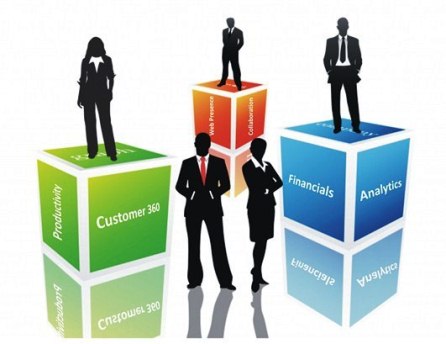CRM & ERP Development

Is your company still using separate software packages for customer relationship, order processing, inventory, HR management, payroll processing, accounting, web content management, lead-conversion pipeline, task/project management, webmail & etc? You know its native problem, You dont have a centralized control & information from these systems. You have to create a new user account in many of those individual systems again and again. They are very isolated and you can't take an informative report from those systems.
Now take the advantage of our customized ERP/CRM Solutions. Our customized ERP/CRM solutions are hosted in a corporate cloud environment. Cloud environment controls your recurring expensens as well as allows you to scale rapidly. You can take reports in any combination of business entities & attributes. This allow you to be well informed about where your business stands. You can control every bit of your business operations under one roof. You & your employees need not to login to different software packages to do their daily operations. You can define access control for each and every employee groups based upon their job roles.
Organizations are increasingly trying to tie applications together - especially business-critical solutions like CRM (Customer Relation Management) and ERP (Enterprise Resource Planning). Many vendors sell both CRM and ERP products, often promising that data from CRM will have a positive impact on decisions administered by the ERP solution. But the two technologies are very different in focus, and allowing too much ERP influence to creep into CRM can shift your company's emphasis away from where it should be: the customer.
CRM and ERP have a collaborative relationship. Imagine that CRM is the point of a large V that faces outward to your customer base, where it is used to track and predict sales. To back up that effort, information coordination with the sales department's sister organizations - finance, manufacturing, product development and marketing - smooth the way. But how do these teams communicate with each other effectively? That's where ERP comes in. ERP is an internal system that coordinates information between various departments and ensures the lifeblood flows through your enterprise to help profitability.
Some factors for considering CRM & ERP Solutions
Ownership: All players should consider their area as an element of the whole enterprise and work in concert with each other. Concealing proprietary information about customers or other aspects of doing business is detrimental.Security: After departments agree that they should share information, protection must be offered for confidential employee, customer and industry data. A system to grant access to information is needed.
Common Data Formatting: Data already exists in each department that is useful to the organization. Back-end data from all departments, for example, is valuable to the on-the-firing-line sales team. But sometimes, the processes of sharing information are flawed. Make sure data isn't unnecessarily duplicated. Review information to ensure that it is not contradictory or out-of-date. The data format should also be the same for each department to avoid confusion.
Scalability: Any ERP system should accommodate enterprise growth and cross-company communication with business partners.
Cost: The initial cost of ERP can be high if communication between departments is seriously lagging. Implementing your solution might be done effectively in stages, perhaps growing outward from an existing CRM system. Ultimately, the improvement in focus on the customer should pay off.
ERP can be implemented in stages, and a lot of software is now Web-based. The difference between CRM and ERP is that the former is outward-looking, while the latter is inward-looking. Building an organization that can accommodate both views is crucial to improving your bottom line. Now as you must have got a picture of CRM & ERP.


